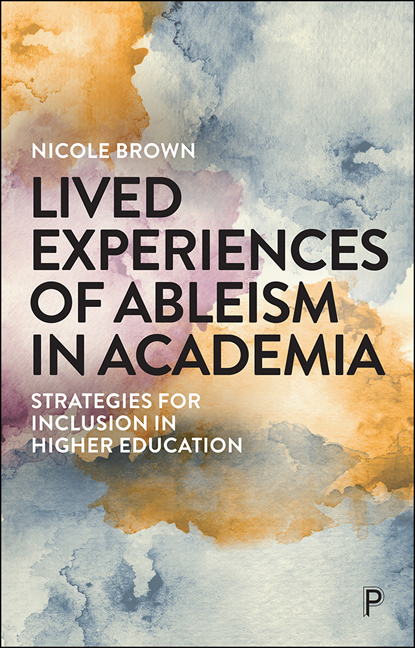Intermezzo
Published online by Cambridge University Press: 18 December 2021
Summary
Ellingson, Butler-Rees, Leigh and Smith have all taken their very own approach to understanding autoethnography, self-narrative and embodied inquiry. Yet, at the core of all four contributions lies the focus on the self and reflexivity. Indeed, self-narratives and autoethnographic work emphasise the need to gain deep understanding of the self (auto) in order to be able to analytically engage (graphy) with wider socio-cultural issues (ethno) (Ellis and Bochner, 2000).
The general critique and criticism of self-narratives lies in the potential lack of rigour of the analytical engagement with culture. However, as the four chapters have demonstrated the emphasis on the self, the lived experience and the body-as-lived enables an understanding that impacts the reader viscerally.
At the same time, these four contributions are in themselves critiques of the kinds of knowledges that are favoured in academia. Ellingson, Butler-Rees, Leigh and Smith highlight that their knowing and experiencing are highly relational and contextual. Life experiences do not occur in a vacuum, but shape and are shaped by the interactions and connections with other human beings in the specific contexts in which they occur (Leigh and Brown, 2021). This relational and contextual nature of experiences in turn requires a strong look inside oneself, thus a focus on the self and reflexivity to make sense of and analyse the meanings of experiences. In other words, the authors’ inward-look enables them to reflect, to look outwards, to make connections and to develop their theorisations of their own experiences. Instead of questioning the rigour of this kind of analysis or knowledge, we as readers should be taking this outward-look another step further to make our own connections, to reflect on our roles within these or similar experiences, to develop theories on what can be done and to take action, thus to be transformed (Berry, 2006; Chang, 2016).
The academics’ personal, professional experiences and scholarly engagement provide an impetus for change within academia, but also provide practical examples for initiatives and strategies to be implemented for the benefit of disabled, chronically ill and/or neurodivergent academics and students. And therein lies the strength of this second part of the book.
- Type
- Chapter
- Information
- Lived Experiences of Ableism in AcademiaStrategies for Inclusion in Higher Education, pp. 91 - 92Publisher: Bristol University PressPrint publication year: 2021



